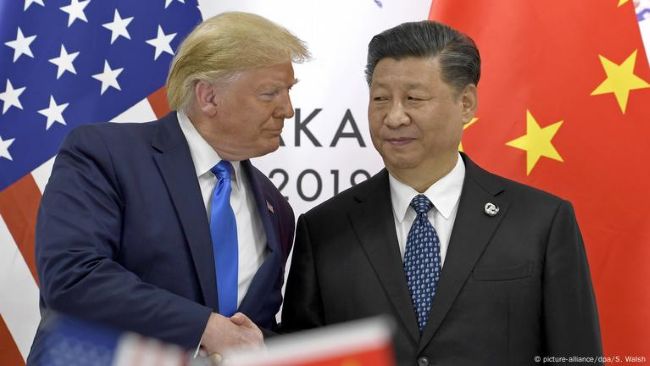US-China Trade Talks set for Switzerland as Global Markets watch nervously

In what could be a pivotal moment in one of the most consequential trade confrontations of the 21st century, the United States and China are preparing to engage in senior-level negotiations in Switzerland this week. The talks, announced by both Washington and Beijing, come after months of escalating tariff battles that have sent ripples across global markets and unsettled investor confidence.
The U.S. Treasury Department confirmed that Secretary Scott Bessent will travel to Switzerland on Thursday for high-level discussions, marking the first direct senior engagement between the two superpowers since April, when tensions between the world’s two largest economies sharply intensified.
While the U.S. side was initially vague about the details, China’s Commerce Ministry and state-run media revealed that Bessent would meet with Vice Premier He Lifeng — a trusted economic lieutenant of President Xi Jinping and a key architect of China’s trade and industrial policy.
Why Switzerland, Why Now?
The choice of neutral Switzerland is both symbolic and strategic — a gesture toward diplomacy in a climate of economic brinkmanship. Analysts say the venue could help lower the temperature, offering a more conciliatory backdrop for dialogue than Washington or Beijing.
According to China’s Commerce Ministry, the decision to engage in talks reflects not only “global expectations” but also domestic pressure from both Chinese businesses and international trading partners. U.S. officials, meanwhile, are feeling heat from American manufacturers, tech firms, and consumers grappling with costlier imports and disrupted supply chains.
A Trade War with Real-World Consequences
Since early April, both countries have imposed punishing tariffs in a tit-for-tat exchange that has impacted sectors ranging from semiconductors to consumer electronics and agriculture. The Trump administration’s tariffs of up to 145% on select Chinese imports were met with Beijing’s retaliatory duties of up to 125% on American goods.
While both governments have carved out narrow exemptions for essential products, the broad economic damage is becoming harder to contain. From faltering exports in Chinese industrial hubs to rising inflationary pressures in the U.S., businesses on both sides of the Pacific are feeling the squeeze.
Investors, meanwhile, have remained on edge. Stock markets in Asia and the U.S. have fluctuated in recent weeks amid conflicting signals from Washington, where President Trump has offered a mix of optimism and opacity. On Tuesday, he told reporters that “they [China] want to negotiate and they want to have a meeting,” suggesting that the Swiss talks may be a step toward de-escalation.
Still, trust remains in short supply. Trump’s previous claims of communication with Chinese leader Xi Jinping were swiftly denied by Beijing, fueling confusion and skepticism among analysts and trade observers.
Implications for Nigeria and the Global South
For emerging markets like Nigeria, the outcome of these talks carries significant implications. The U.S.-China trade war has already reshaped global supply chains, creating opportunities and disruptions in equal measure.
Rising tariffs have prompted some multinationals to explore alternative manufacturing bases outside China — a window of opportunity that African economies, including Nigeria, are eager to leverage. However, uncertainty in global trade flows, weaker demand from China, and currency volatility driven by U.S. monetary policy continue to complicate growth projections.
Moreover, the broader geopolitical undercurrent — with the U.S. seeking to curb China’s technological and industrial ascent — means that this is about more than trade. It’s about who sets the rules of the global economic order in the decades to come.
Bottom Line: A Narrow Path Between Dialogue and Decoupling
The Switzerland meeting may offer a diplomatic pause in an increasingly fractious relationship. But seasoned observers caution against over-optimism. The structural rift between Washington and Beijing — driven by competing worldviews on trade, technology, and global influence — runs deep.
Still, the fact that both sides are talking again is a welcome sign. For global business leaders, policymakers, and consumers alike, what happens in Switzerland could ripple far beyond the Alps — shaping everything from tech supply chains to inflation trends and investor sentiment worldwide.
Analysis:
The BRANDECONOMY verdict: The US-China trade talks in Switzerland are not just another negotiation round — they’re a potential inflection point in global economic diplomacy. While the odds of a comprehensive trade resolution remain low, even a limited thaw could ease pressures on global markets and offer some predictability. For Nigeria and other developing economies, a de-escalation could open the door to new trade opportunities — but a return to tariffs and tech wars would demand agility and strategic re-alignment.











